
May 13, 2020 | News

Alex Moore, Senior Director of Marketing and Communications, United Way of the Piedmont
by Alex Moore, Senior Director of Marketing and Communications, United Way of the Piedmont
In this new world of COVID-19, we are all seeing a lot of good deeds and outpouring of support. Much of the world is doing their best to make lemonade out of these pandemic-flavored lemons. From personal gift baskets and collections for frontline healthcare workers, nonprofits who need our help “now more than ever,” individuals sewing masks and donating goods, there’s a lot of good happening. However, there’s still so much need right now it can be hard to know where or how to do some good.
For United Way of the Piedmont’s part, we’ve focused on doing what we do best: convening partners, informing the community, and finding solutions to problems as they arise. United Way of the Piedmont (UWP) covers Spartanburg, Cherokee, and Union Counties, and we have been holding weekly check-in calls for each county to assess needs and resources. We have also been providing direct service through our Community Resource Coordinators who serve as our boots on the ground, connecting families to resources and providing financial assistance.
This financial assistance comes directly from UWP’s United for All Fund, which is a disaster relief fund that has been activated in response to COVID-19. The fund directly supports individuals and families in Spartanburg, Cherokee, and Union counties through the Community Resource Coordinator program. Funds are primarily used to support families who have lost wages due to COVID-19 with expenses like rent/mortgage, utilities, and food.
Since beginning this work in mid-March, UWP Community Resource Coordinators have assisted more than 125 households with assistance related to COVID-19. Of these families, 52% have never received assistance before. Currently, we are averaging two calls for assistance per hour which represents a steady increase over the past several weeks. We anticipate the need will continue to grow and we will continue to see the economic effects of COVID-19 on families in new and unique ways.
However, we are not alone in this work. While United Way is a global brand, there are 25 United Ways that operate at a local level across the state. Each United Way is responding differently according to the capacity of their organization and the needs of their community. Below is a list of the United Ways in the Upstate with links to their websites:
Not every community has a United Way or even a large number of nonprofits, but they still have people who need help. To address needs at a statewide level, the One SC Fund has been activated in response to COVID-19. The One SC Fund: COVID-19 Response is a partnership between SC Grantmakers Network, Together SC, and the United Way Association of SC. The funds will be held at Central Carolina Community Foundation. The funds deployed will enhance the efforts already underway in several counties and regions across South Carolina and will be used to address gaps in the response efforts, including support for communities that lack resources or an organized philanthropic response. The One SC Fund also provides an easy way to donate for companies or individuals who wish to make a statewide impact due to having multiple facilities in multiple locations.
Whatever your passion or desired impact, there’s an organization or fund out there to help you make that impact. And for our part at United Way of the Piedmont, we consider it our job, but really our privilege, to help you connect to those organizations.
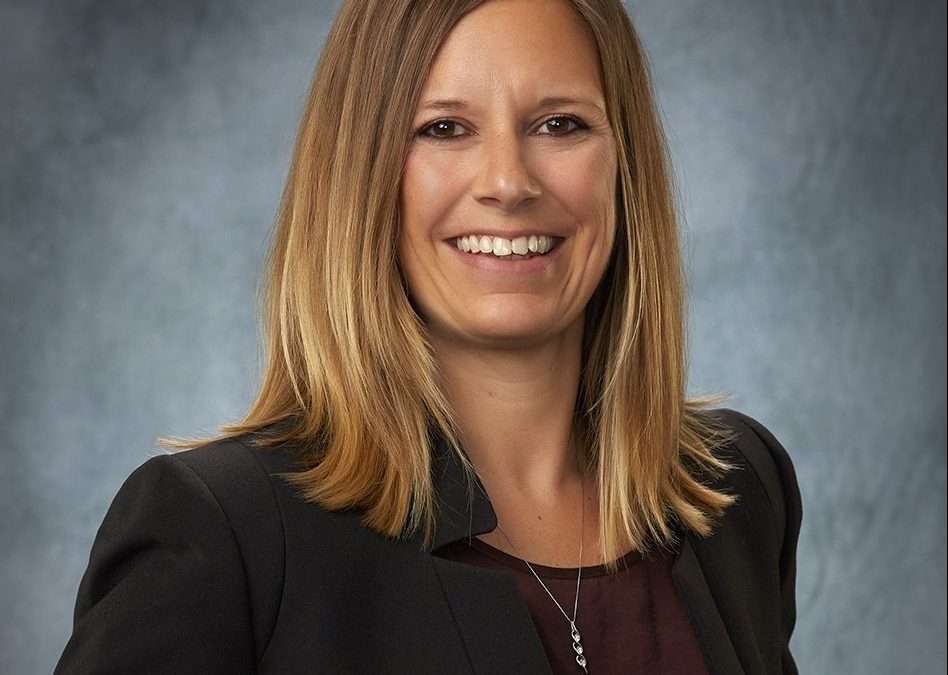
May 13, 2020 | News
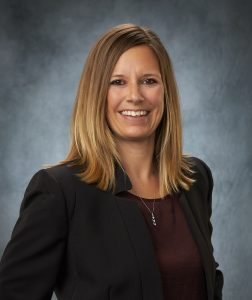
Angie Gossett, Greenville Regional Marketing Director, BCBS of SC
by Angie Gossett, Greenville Regional Marketing Director, BlueCross BlueShield of South Carolina, with Sharon Purvis
BlueCross BlueShield of South Carolina has been offering medical benefits to South Carolinians for more than 70 years and is one of the largest employers in the state. The company is also a major supporter of community and charitable organizations, including Ten at the Top. As the pandemic crisis unfolded, BCBS of SC mobilized to support its members and providers, but also communities across the state, providing funding for food for seniors as well as PPEs for doctors’ offices.
Q: Catriona Carlisle of Meals on Wheels Greenville told us in last week’s TATT Chat about a program that is funded by BCBS to feed seniors in 15 counties in South Carolina. Which other Upstate counties does that cover, and how did that partnership come about?
BlueCross BlueShield of South Carolina has had a very long association with Senior Resources. We recognize that Seniors are a vulnerable population and based on data from the South Carolina Department on Aging there are roughly 200,000 South Carolinians over 60 years of age who are food insecure. The COVID-19 pandemic has dramatically increased the number of affected individuals. We saw an immediacy to the need and we wanted to do what we could to help. Through BlueCross and the BlueCross Foundation, we are providing nearly $1.6 million to expand Senior Resources’ emergency senior nutrition program, which is giving five free meals weekly to eligible homebound elderly. This contribution is anticipated to provide 245,000 meals. Through this model, we are able to assist seniors in Richland, Anderson, Clarendon, Lexington, Barnwell, Calhoun, Fairfield, Greenville, Horry, Kershaw, McCormick, Newberry, Oconee, Orangeburg and Williamsburg counties.
Q: As someone who is covered by BCBS, I received an email explaining that I can access a free telehealth consultation through BCBS (using my membership number). What has been the response to that? Have a lot of people used this benefit?
With the Stay At Home order and the need to socially distance from others, we recognized that members likely would not feel comfortable going to the doctor’s office, so we are supporting both of these efforts and offered for anyone to use our special coupon code with our telehealth product Blue CareOnDemand. When members use the coupon code, COVID19, they can access a telehealth provider at no cost until June 1. This code allows for a member to have a video visit, regardless if the visit is related to COVID-19 or for another reason such as urgent care, behavioral health, or lactation consulting. When we made this option available, we saw a spike in utilization, which meant longer wait times for those calling in; however, the wait times have decreased as more providers have been added to be able to assist members with these services.
 Q: Does BCBS have a role in COVID-19 testing?
Q: Does BCBS have a role in COVID-19 testing?
BlueCross BlueShield is not administering COVID-19 testing; however, we are covering testing and the associated visit at no cost to the member. We are also waiving any pre-authorizations for members with COVID-19-related conditions and treatment. For our fully insured employer group customers, we are also waiving out-of-pocket costs for members with COVID-19 related services with in network providers. If a member has questions about how we are covering COVID-19 services for their plan, they should call the number on the back of their ID card.
Q: What other initiatives has BCBS launched to help with the COVID-19 outbreak in South Carolina?
We have donated $100,000 to the Red Cross and are encouraging employees who feel comfortable donating blood to find their local blood bank to help support the local blood shortage.
Q: Have there been unexpected impacts on your company and industry that people may not know about?
BlueCross BlueShield is considered an essential company, so when the Stay At Home order went into effect, we quickly made changes to support this effort through moving employees to a work from home status or staggering shifts to maintain social distancing while still maintaining the service levels that our providers and members have come to expect from us.
Q: What partnerships has BCBS formed to help with the pandemic that may seem surprising?
BlueCross BlueShield collaborated with the Charleston County Medical Society to help coordinate delivery of 300,000 pieces of personal protection equipment (PPE) that independent physicians and medical practice representatives had pre-ordered. This effort, dubbed Action PPE South Carolina, came about because of the lack of access to PPE for physicians and medical personnel practicing in clinics and small or independent practices. Since priority to PPE was given to hospital systems and government agencies, it meant that doctors and their staffs had to create their own solution, and the Charleston County Medical Society and BlueCross were pleased to help. We know that these practices are seeing our members too, and the safety of our providers and members is important to us.
Q: Is there anything else you would like people to know about what BCBS is doing during the pandemic?
We have had many employees volunteering outside of their normal jobs during the pandemic through various activities. They have been making masks to donate, assisting others to get needed supplies, delivering groceries to those unable to get out and providing financial support to those organizations who are being negatively impacted. Through our outreach we are touching members, providers, and the community. We have been doing our part and stepping up as we always do as a good corporate citizen in our support of vulnerable citizens.

May 7, 2020 | News
Welcome Terence Roberts
TATT Updates Dean Hybl, Sharon Purvis
- Pique 2020: Postponed until September 14th; panel content is fluid at this point as the committee decides whether to make big changes or small tweaks to the panel topics
- County Listening Tour: A couple have been scheduled, and all seven rural counties have been contacted. The purpose is to hear about challenges and concerns to look for commonalities that can be addressed more broadly.
Initiative/COVID-19 Updates
Staying Mentally Healthy—Elizabeth Freeman, USC-Upstate (you can see her presentation slides here)
Mental Health Tips in the Current (this will change) New Normal (adjusting our lives to the reality of COVID-19)
- Don’t separate mental health from physical: anything you do for your physical health contributes to your mental health
- Understand your mental health systemically, like we do our physical health:
- Sense of self (I)
- Sense of others (they)
- Sense of community (we)
- All 3 have four components: identity, awareness, spirit, and emotions
- Understand yourself—be self-aware
- Empathize with others
- Facilitate the WE
Upstate Tourism Update—Tim Todd, Discover Upcountry
- January and February were good, and then the bad news came: tourism revenues down 46%
- Will probably be down 50% ($7.5 billion) for the year
- International travel is down 90%
- In the first quarter, 180,000 jobs lost in restaurants/lodging (mostly in restaurants), but hopefully many will come back. Probably not all.
- Guidelines/recommendations for the “new normal” for lodging: no valet parking, no buffet breakfasts, no bellmen, limited contact check-in
- Inside dining changes: disposable menus, no shared condiments, tables spaced apart, no parties larger than 8
- Tourism recovery plan: focus on a 350 mile radius (plus Ohio) for marketing, assuming that people will be driving, not flying—”Dream now, discover later”
- Short-term rentals (VRBO, Air B&B) might do better than hotels because of the lack of contact/shared space
- Tourism will be more of individual experiences vs. group events
- State parks reopened last Friday with limited capacity, and picnic shelters, community buildings, etc. are not open
New Senior Meals Program—Catriona Carlisle, Greenville County Meals on Wheels
- Greenville is one of 15 counties in SC to receive an emergency senior nutrition program funded by BlueCross BlueShield
- Any resident 60 years and older can receive a five meal frozen pack
- The focus is on rural areas with limited resources: Ware Place, Fountain Inn, and Berea are the drive-through pick-up sites
- Once a week for the next 5 weeks
- Many of the seniors who are receiving the meals are individuals who haven’t needed to access resources before
Entrepreneur Ecosystem – Erin Ouzts, Upstate Entrepreneur Ecosystem
- Final webinar next week: a round table discussion, with questions about what participants are seeing and what they need
- June 25th quarterly meeting will hopefully be in person; details to come
- Click here for videos and presentations from the previous webinars
County Updates
Laurens: Amanda Munyan, Laurens County Chamber of Commerce
-
- Chamber, county, various groups working together to support businesses
- Putting together a business recovery plan
- Surveying the community to see what will make people comfortable to visit businesses: gloves, masks, plexiglass barriers, etc.
- Working to change the culture to encourage community to purchase anything they possibly can from local businesses
- Mobilizing for financial assistance
- Workshops to strengthen businesses, focus on basics that might be overlooked as businesses are in survival mode
- “Business boost” videos, promoting local businesses
- Think Local Laurens County
Cherokee, Spartanburg, Union: Hannah Jarrett, United Way of the Piedmont
-
- United for All fund
- 211 Coordinated entry system
- 266 households have accessed assistance, mostly in Spartanburg County—working on raising awareness in Cherokee and Union Counties, making sure people know what resources are available
- $111K distributed in the first month, mostly in rent/mortgage assistance
- Most are reaching out for the first time; only 15% are frequent users of safety net resources
- About 6 weeks more on hand, but continuing to fund-raise, trying to raise enough money for 3 months
- May has seen a doubling in the numbers daily of people reaching out, with the moratorium on evictions being lifted on the 15th
- Click here to see graphs and stats
Greenville: JoKeitha Seabrook, United Way of Greenville County
-
- Fund-raising for Greenville’s United for All fund has reached $1 million
- Emphasis has been on food first, working with the school district to get food to families
- Have seen a huge need in Hispanic community—funding to local churches that work with that community
- Have granted out over $367K in the “housing next” phase, formed a large coalition of non-profits to address housing isues
- 211 system is in-house in Greenville, offering Spanish translation as needed; more than 2500 calls so far
- Anticipating an increase in housing assistance
Other counties are providing a positive update and community challenge shared by Sharon Purvis:
- Annie Caggiano, Oconee Economic Alliance: Our good news is that Borg Warner is back to production on a limited basis. Also by 3:00 today we will be announcing that the Newry Mill has been purchased and is being redeveloped into apartments. This is being doing by the M peters group which did the Plush Mills project in Greenville.
- Mike Clary, City of Abbeville:
Encouraged by: I have been encouraged by the resourcefulness of many local businesses in adapting to the current situation. For example, several local restaurants seem to have been able to completely change their business model in order to stay open and relevant.
Challenge: A major challenge for the City has been the loss of event revenue and the loss of the economic impact of the City’s events on local businesses. So far the City has had to cancel the annual Spring Festival and over 15 shows at the Opera House. The loss of that revenue and the lost potential impact has been a challenge, but perhaps the main challenge is looking towards the future; i.e. how to successfully manage the need to bring in people and have events with a retail and dining economy that is largely based on tourism with the need to keep people safe and not rush back into operations too soon.
- Cindy Hopkins, Easley Chamber of Commerce:
Encouraged by: Have heard from many businesses in the last couple of weeks that PPP funds have finally been received to help ease their financial burdens (for the moment). It’s been nice to talk with businesses and hear a sense of hope in their voice.
Challenge: Many businesses have shared concerns about re-opening.
- Pam Christopher, Anderson Chamber of Commerce:
Encouraged by: The leaders in our community have been working together to bring solutions for our business community and our citizens. From our elected officials, to our State and Cities/Towns Administrators, School Superintendents and post secondary colleges/universities have been coordinating efforts to answer the needs throughout Anderson County. Our County Officials have been checking in with each of our towns/cities to ensure they have everything they need and assisting them. Our United Way and non-profits have been tremendous in providing services to include food and working with our utilities regarding those citizens that have needs during this time. Big shout out to Carol Burdette that has put in tremendous hours to serve those in need. So proud of all those in our community that have been helping our friends and neighbors in Seneca and Oconee County that had damage during the recent storms.
Challenge: We still have businesses within our county that weren’t able to access grants/funding and there is a great need in particular for our small business community. However, we have efforts that are being worked on to address these concerns. Our Chambers of Commerce are working collectively in the Upstate to provide relief and help to our business community and have submitted forward an outline at the State level to address those needs/concerns. In addition, our Chambers along with the South Carolina Chamber of Commerce are working on efforts to protect our business community from any lawsuits that could affect them during this Covid-19 timeframe. With all our businesses are going through this is the last thing they need at this time. We are also hearing repeatedly that those that have filed for unemployment have still yet to receive any assistance or feedback. Our concern is that many have been without a paycheck for almost two months now.
- Heather Jones, Greenwood Partnership Alliance:
Encouraging: We got the draft of the recovery plan completed, Battleplan Greenwood, and our first meeting of this task force was held on Monday.
Challenge: Unemployment claims jumped from low 300’s on March 21 and exceeded 1,000 last week.
Adjourn Terence Roberts
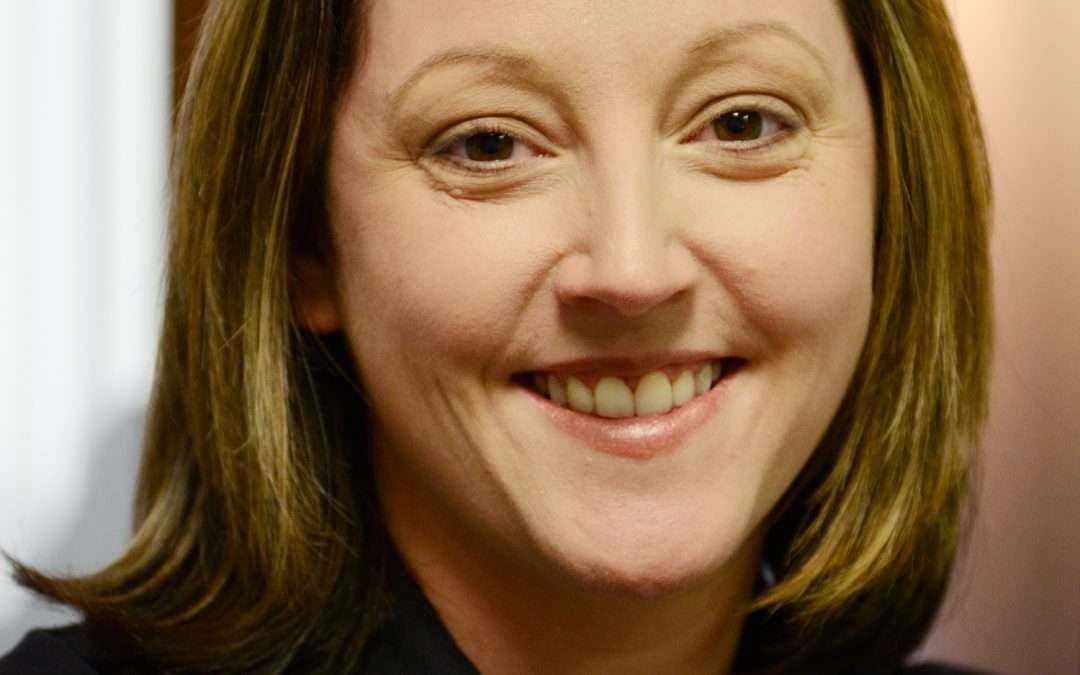
May 6, 2020 | News

Ellen Pate, Assistant Vice President for Student Wellness an Career Development, Southern Wesleyan University
by Ellen Pate, Assistant VP for Student Wellness and Career Development, Southern Wesleyan University, with Ed Welch, Director of Communications, Southern Wesleyan University
Unemployment rates have spiked in response to COVID-19 related business shutdowns, leaving many faced with a return to job hunting.
For those who have lost jobs after many years of employment, the new job landscape may seem like uncharted territory, especially with technology that has replaced face-to-face interviews.
According to the Southern Wesleyan University Career Services Center, video interviews were already becoming more commonplace because of employers wishing to save time and money when interviewing job candidates. More and more, Zoom and similar digital platforms are being relied upon, not just because of cost savings, but because of the current climate of quarantining and social distancing.
“One of our goals during this chaotic season is to empower job seekers to know how to adapt strategies such as practicing your skills for virtual interviews versus face-to-face,” said Ellen Pate, assistant vice president of student wellness and career development at Southern Wesleyan. Pate stresses that job seekers should plan a video interview in the same way as with any other job interview, since video interviews can carry the same weight as an in-person interview.
The Southern Wesleyan University Career Services Office provides these interview preparation tips:
- Get ready early, understand how the equipment works and software and test it out by doing a dry run with a friend or family member. The better you understand the equipment, the more comfortable and confident you will be.
- Set up the camera so it focuses on you. If you can get a tight head/shoulders shot, this is best. Try to keep other objects out of the shot, or the viewers may get distracted if the area is cluttered.
- Make sure the microphone is near you but be conscious of it. Because microphones built into computers, phones and tablets can be sensitive, small noises can be very loud on the other end; microphones can pick up the sounds of a foot tapping or paper shuffling.
- Minimize background distractions in the area directly behind or to the sides of where you’ll sit (distracting artwork, clocks, windows with activity outside, etc.). If possible, remove any motion, since motion is distracting and may cause distortion as the image is transmitted.
- Dress professionally – the same as for an in-person interview. Try to choose conservative colors and avoid busy patterns or bright whites as they don’t pick up well on cameras. Test it out in advance so you know your look is professional on both sides of the camera.
- Don’t assume that the interviewer will only see your face. You may need to stand up at some point, so be sure you’re dressed professionally from head to toe.
During the Interview:
- The interview process will be the same as an in-person interview. You can expect to be asked the same type of interview questions, so prepare as you would for any other interview. Also, be sure to have several questions prepared to ask the interviewer.
- Try to limit your movements to normal conversational shifts. Don’t play with your hair or use excessive hand gesturing.
- If you are interviewing from your home, make sure any TVs and stereos are off in the background. Also, if you have children/pets/walk-in family or neighbors, make arrangements in advance to keep them from starring in your video interview.
- Eye contact is just as important with a video interview as it is face-to-face. Avoid raising or lowering your eyes/head to the camera, it will be focused on the top of your head. If possible, monitor yourself. Some systems will allow you to keep a “picture-in-picture” of yourself on the screen, so you’ll be able to see what the interviewer sees. You can adjust your position and monitor your body language using this feature.
- Remember to smile. This makes a very pleasant impression on the interviewer.
- If there is more than one interviewer, remember that you cannot “turn towards” someone to indicate who you are addressing, nor can you make eye contact. So get the names of the interviewers in advance, and use their names to indicate who you are focusing on in your responses.
- Non-verbal listening cues become more prominent in a video interview. You will become more aware of the facial expressions of the interviewers and they will be more aware of yours. Try to be more conscious of your expressions. Actively look as though you are interested and listening…they will notice.
Interviewing via video can be to your advantage if you convey a natural comfort level and confidence with the experience. Interviewers know that most people haven’t used video interviewing before, so if you appear confident on camera, it will reflect well on you.
After the interview, remember to thank your interviewers and then send a thank you note stressing your interest in the position.
Pate adds that the Career Services Office wants to connect job seekers with employers they know who are hiring. She urges anyone to follow them on Instagram and Facebook pages and online for video tips, links to resources and current job openings.
Southern Wesleyan University is a Christ-centered, student-focused, faith-filled community that offers inventive learning experiences. The university endeavors to prepare its students to be dedicated scholars and servant-leaders who impact the world for Christ. For details about degree programs, go online to swu.edu.
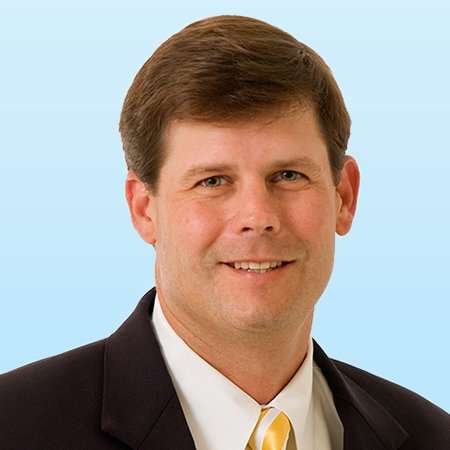
May 6, 2020 | News

David Feild, Market President, Colliers International
by David Feild, Market President, Colliers International
Like many companies, we here at Colliers International are turning our attention to how our employees will return to the workplace after abruptly being asked to work from home. COVID-19 initially created challenges as the Upstate workforce quickly pivoted to working remotely. While there will be long-term impacts to the future of workplace, our focus is now turning to the immediate concern: How will we all return to the workplace? Governor McMaster has rescinded his ‘home or work’ order and many organizations are immediately contemplating a return to the office. The U.S. Chamber of Commerce has said, “returning to work will be gradual, phased-in and will vary by factors such as location, sector, business type or size, and the health status of workers. It also will require continued social distancing, expanded use of personal protective equipment, and other counter-measures.” Employers are asking questions about the changes they need to make to ensure that the post-pandemic workplace is safe, functional and most importantly, builds trust with their employees. Questions like:
- How will our recent experience with working from home impact the post-COVID workplace?
- What hygiene and cleaning practices need to be put in place to maintain the health and safety of employees?
- What physical changes do we need to make to our space?
- What new behaviors do we need to encourage?
- What are the best practices others are doing to make their workplaces safe?
- How do we build trust with our employees and assure them that our workplaces are safe?
Through extensive research and discussions with our clients around the world, Colliers International has divided the actions that offices will need to take to ready their space for their employees’ return into five categories. The following recommendations represent the current thinking on best practices and immediate actions to be considered.
DESIGN AND SPACE CHANGES
To help maintain the six-foot social distancing recommended by the Center for Disease Control (CDC), some alterations will need to be made to space layouts and furniture. It should be noted that for the initial return to the workplace, we see most actions as behavior and cleaning related, rather than space changes. A sampling of changes includes:
- Rotate open workstation desks/work surfaces so people do not face each other.
- In areas with six-by-six-feet workstations, occupy every other workstation. This can be rotated on a daily basis for different teams.
- Direct employees to work in alternative work areas like conference rooms, huddle rooms, open collaborative areas, etc. Many have said that since they have mastered the art of virtual meetings, they will turn their conference rooms into assigned work spaces to reduce density in their open workstation areas.
- Install temporary clear plastic panel barriers at the reception desk to separate visitors from receptionist.
- Install tall partitions between desks that face each other. An alternative is to install temporary clear plastic panel partitions to raise lower panel heights to at least 60 inches.
NEW BEHAVIORS
- Educate receptionist to know what to do after interacting with a person who exhibits COVID-19 symptoms.
- Consider a staggered employee arrival and departure plan to limit densities in elevator cabs.
- To reduce touching of door handles, leave office and conference room doors open unless there is an absolute need for privacy.
- Encourage people to collaborate virtually, rather than in a conference room, whenever possible. Ask, “can this meeting be a virtual conference call?”
- Use paper cups and disposable utensils until it is safe to use washable utensils.
- Ask that employees clear the desk they have used of all personal items at the end of each day.
COMMUNICATION AND NAVIGATION
- Install signs to inform visitors of distance rules, hand washing and sanitizing, gathering, queuing at coffee stations and wearing of masks (where required) in public areas.
- Using signage, create one-way, clockwise paths through the space. Tape arrows on the floor to indicate direction.
- In conference rooms, after removing every other seat, put tape markers on floors to indicate safe six-foot clearances between seats.
- Use signs to show that whiteboards cannot be used (due to shared pens) or provide individual pens sets to certain employees.
- Put marks on the floor to indicate safe six-foot queuing distances near copiers.
HYGIENE AND CLEANING
- Empower employees to take care of their own hygiene safety. OSHA’s Guidance on Preparing Workplaces for COVID provides recommendations for new behaviors, safe work practices, personal protective equipment, etc.
- Place dispensers of alcohol-based (60% minimum) hand sanitization prominently throughout the space.
- Discourage employees from using other employee’s phones, desks, offices or other work tools and equipment.
- Provide disposable towels/wipes for employees to clean their work surfaces, task lighting, chair backs and other touchable surfaces in their work area.
- Provide access to trusted health information and provide regular briefings on hygiene.
- Throughout the day, clean door pulls/handles, handrails, elevator buttons, badge readers, appliance handles, light switches, shared common areas, counter tops, snack dispenser controls, sinks and faucets, copiers/fax machines and touchable pads in conference rooms.
- Make cleaning visible throughout the day to help reduce employees stress levels and build trust.
- Each night, clean all touchable surfaces including desktops, task lighting, light switches, chair backs and arms, drawer handles and desk height control.
TECHNOLOGY
- Leverage technology to continue with remote work. This will reduce density to help maintain distancing requirements of the office and enable staggered occupancy of the workplace during different days of the week. Preliminary findings from Colliers’ Global Working from Home survey, launched in March, shows that 80% of employees would like to continue working from home at least one day a week.
- Install touchless door openers at key locations. In bathrooms, install touchless, motion activated faucets, soap dispensers, flushing and paper towel dispensers (or air hand dryers). Consider voice activated elevator controls.
- Use screens to broadcast new workplace hygiene rules.
These are only a sampling of the initiatives companies are taking to get their workplaces ready for their employees’ return. Like you, Colliers is continuing to learn from this unprecedented event. Our collective experiences now will shape the workplace for years to come. Many things will never be what they once were. But the first task in front of us it to safely get back to the workplace and back to working together.

May 1, 2020 | News
 Amid uncertainty about when large gatherings will be permitted or advisable, Ten at the Top has made the decision to postpone their signature young professional event, Pique, until September 14th. It was originally scheduled for March 23rd and had been rescheduled for June 15th. The event will still be held at the Huguenot Mill and Loft in downtown Greenville, with ScanSource as the presenting sponsor, and local author Sallie Holder as the keynote speaker.
Amid uncertainty about when large gatherings will be permitted or advisable, Ten at the Top has made the decision to postpone their signature young professional event, Pique, until September 14th. It was originally scheduled for March 23rd and had been rescheduled for June 15th. The event will still be held at the Huguenot Mill and Loft in downtown Greenville, with ScanSource as the presenting sponsor, and local author Sallie Holder as the keynote speaker.
Attendees who have already purchased tickets will be issued a refund if they are unable to attend at the later date; those who have tickets and do still wish to attend do not need to take any further action. Ticket holders will be contacted by Ten at the Top.
The event focuses on connecting young professionals across the Upstate, giving them opportunities to network as well as to hear from experts on topics that are relevant to their working lives.
In this 5th year of Pique, the program will feature 3 breakout panel sessions along with executive roundtables, a LinkedIn Lounge, and keynote speaker Sallie Holder. Additionally, there will be plenty of opportunity for networking, sharing ideas, and discussion of future collaboration.
During each of three breakout sessions, attendees will have four choices: one of two panel sessions, the executive roundtables, or the LinkedIn Lounge, sponsored by AFL, where they will have an opportunity to have a professional headshot done.
The planning committee will be revisiting the panel topics in light of COVID-19. “The original panel topics, ‘Negotiating Your Best Career,’ ‘Community Engagement: Building Your Career Outside of Your Office,’ and ‘Conflict Management: Effective Communication for a Peaceful Workplace,’ are topics of interest to young professionals, but the world has changed since we chose them,” said Pique planning committee chair Jessica Miserendino. “Whether we just tweak the content of those panels or choose new topics altogether is something the committee will be looking at.”
For many young leaders who want to make an impact on their local community, one major barrier is having access to current decision makers who are helping shape the region. Pique hopes to foster collaboration and bridge the gaps between young professionals and the Upstate’s top executives through the executive roundtables that have been a very popular feature of past Pique events.
Local author Sallie Holder will be the keynote speaker. Her book, Rock Middle: The Roadmap from Empty Success to True Fulfillment, was released in January, and copies will be available for sale at the event.
A graduate of Vanderbilt University and the University of South Carolina Law School, Holder previously served as an attorney at Ogletree Deakins Law Firm and lives in Greenville. She coined the phrase “Hitting Rock Middle™” and the revolutionary BE BOLDER strategy to help people create their biggest, boldest, most successful careers. In addition to her recently released book, Sallie is a dynamic speaker who leaves audiences with the tools they need to make the changes they desire. She’s an expert on leadership, teams, change management, mindset, and motivation.
Following her talk, attendees will head to the reception, which will once again be catered by Cribbs Catering.
Registration and networking begin at 1:00 p.m. on Monday, September 14th, at Huguenot Mill and Loft (101 West Broad Street, Greenville, SC 29601), with the event beginning at 2:00 p.m. The reception will begin at approximately 5:30 p.m. Tickets are $25 and can be purchased here. For more information, visit the website or contact Sharon Purvis.


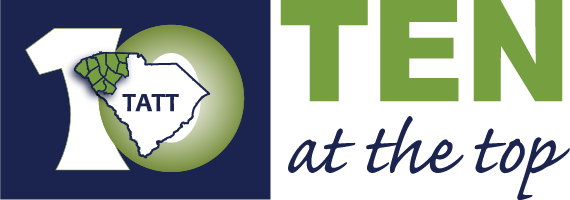


 Q: Does BCBS have a role in COVID-19 testing?
Q: Does BCBS have a role in COVID-19 testing? 





 Amid uncertainty about when large gatherings will be permitted or advisable, Ten at the Top has made the decision to postpone their signature young professional event, Pique, until September 14
Amid uncertainty about when large gatherings will be permitted or advisable, Ten at the Top has made the decision to postpone their signature young professional event, Pique, until September 14